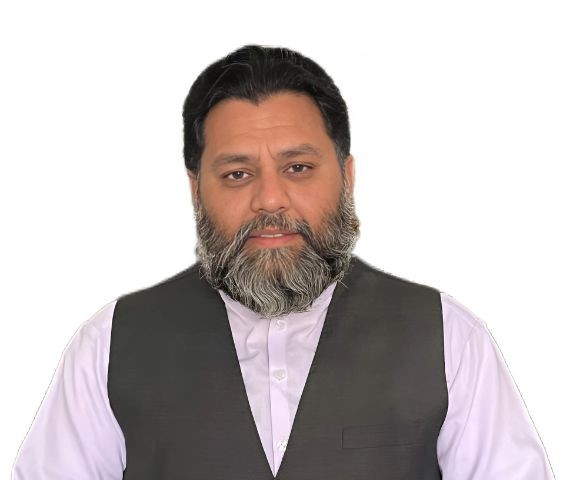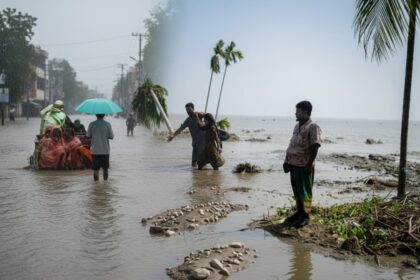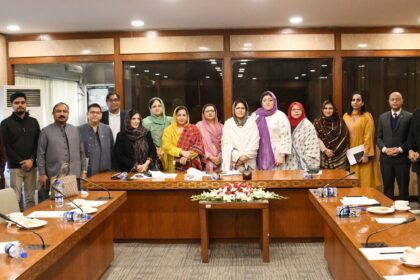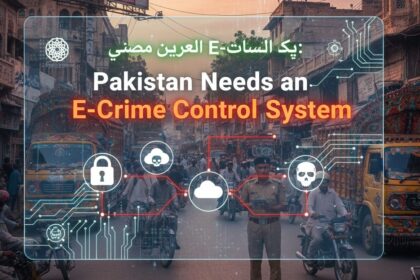Launch a National “Skill and Empowerment Program” for Persons with Disabilities
By: Zaheer Ahmed Awan
The true character of any civilized society is reflected in how it treats its weak, marginalized, and specially-abled citizens. Persons with disabilities are not a burden on the nation; rather, they are individuals with immense potential, talent, and determination. With proper education, training, and opportunities, they can not only lead independent lives but also become valuable contributors to the country’s progress and prosperity.
Pakistan, a country rich in human potential, unfortunately faces a serious challenge in integrating persons with disabilities into the mainstream. According to official statistics, there are around 9.2 million registered persons with disabilities in Pakistan. However, non-governmental organizations and international bodies estimate that the actual number exceeds 10 million, as a large portion of this population remains unregistered—especially in rural areas where access to medical certification and data collection is limited.
Regrettably, Pakistan still lacks a comprehensive national policy or long-term strategy to empower and rehabilitate persons with disabilities. Government allowances and charity-based assistance from NGOs provide temporary relief, but they do not address the root causes of social and economic exclusion. What Pakistan urgently needs is a nationwide “Skill and Empowerment Program” designed to equip persons with disabilities with modern education, vocational training, and sustainable employment opportunities.
Many welfare organizations in Pakistan are making sincere efforts to support the disabled community, yet their reach remains confined to limited areas. The government must step forward with a systematic approach: first by collecting accurate data, then categorizing disabilities according to age and ability, and finally by providing tailored education and skill development programs across all provinces and districts.
Globally, several countries have demonstrated that inclusive development is not only possible but highly beneficial for the economy.
In Japan, Vocational Rehabilitation Centers have been established where persons with disabilities receive specialized training based on their abilities, allowing them to live independent and dignified lives.
In the United States, the Americans with Disabilities Act (ADA), enacted in 1990, ensures equal access to education, employment, healthcare, transportation, and public facilities.
The United Kingdom operates an Access to Work Program that provides financial and technical support to disabled individuals, enabling them to work from home or adapt their workplaces.
China has established universities and training centers dedicated to teaching persons with disabilities in fields like information technology, electronics, and handicrafts.
Similarly, Turkey and Malaysia have introduced scholarship schemes, technical training programs, and job quotas to ensure social inclusion and economic empowerment of disabled citizens.
These international examples highlight an important lesson: persons with disabilities should not be seen as objects of pity but as capable human resources. Given the right environment and tools, they can excel in every field—be it education, business, sports, or science. The life of Stephen Hawking, one of the world’s most brilliant theoretical physicists despite being physically paralyzed, stands as a timeless example that disability is not incapacity.
To move forward, Pakistan must adopt a structured and inclusive approach. The following steps can form the foundation of a sustainable empowerment strategy:
- Establish a national database for persons with disabilities, including details of their education, skills, and specific needs.
- Create Skill Development Centers in every province offering training in computer literacy, tailoring, electronics, handicrafts, and digital freelancing.
- Enhance educational access by introducing online learning systems, scholarships, and quota-based admissions for disabled students.
- Increase job quotas in both public and private sectors from 2% to at least 5%, and strictly ensure implementation.
- Promote digital employment by training persons with disabilities for freelancing and remote work opportunities, enabling them to earn from home.
- Establish psychological and social rehabilitation centers to build confidence and emotional resilience among disabled persons.
- Enact strong legislation to prevent discrimination, mockery, or exploitation of persons with disabilities, with defined penalties for offenders.
Beyond the government, the media, civil society, and educational institutions share a collective responsibility to reshape public attitudes. Awareness campaigns should be launched to highlight that disability is not weakness—it is a test of strength, will, and human dignity.
If Pakistan provides education, training, and employment opportunities to its disabled citizens, they will no longer be seen begging on streets or depending on charity. Instead, they will become self-reliant contributors to the national economy.
The time has come to replace sympathy with opportunity. Launching a “National Skill and Empowerment Program for Persons with Disabilities” is not merely a welfare initiative it is a step toward economic sustainability, social inclusion, and national dignity.Empowering the disabled is not an act of kindness; it is an investment in Pakistan’s future. These individuals are not a burden—they are our hidden strength. With vision, commitment, and inclusive policies, Pakistan can transform this marginalized group into a pillar of national progress and a symbol of true humanity.











